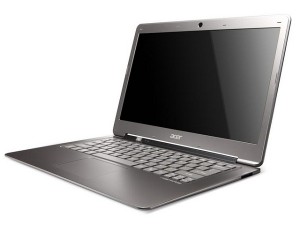2012 to usher in an era of being ‘always connected’—IT experts
MANILA, Philippines – As 2011 ends, an international computer microchip manufacturer is driving forward into 2012 in preparation for an era of being “always connected.”
In Intel Microelectronics Philippines Inc.’s recent year-ender discussion with media, top officials shared their predictions and outlook on the computer industry for the next few years.
Christopher Syling, business development manager, said that by 2015 there would be “one billion more netizens, 15 billion more connected devices.” The large number of users with connected devices would also mean “more than 1,000 exabytes of internet traffic,” Syling added.
One exabyte is equivalent to around 1,073,741,824 gigabytes. Desktop computers and laptops typically have 500 gigabytes of storage.
The cloud environment is expected to develop further as more data centers and servers are built to cater to the increasing traffic. The security for these centers will be strengthened as well, which will give businesses more confidence to utilize the many cloud services that will become available to improve their productivity and capabilities, Syling said.
Consumers will also be able to have greater access to the many computer devices because of the growing purchasing power in Asia, said business development manager Jermyn Wong.
Advances in technology will create better computers that will provide better performance, energy efficiency, and security features. Intel is set to release its newest microchip dubbed “Ivy Bridge” in 2012 said Ricky Banaag, country manager of Intel Philippines.
“Ivy Bridge” is the smallest transistor ever produced by Intel at 22 nanometers. Its previous transistor, which is in microchips in computers today, was 32 nanometers small.
Banaag showed a comparison chart to give a better understanding of how small the transistors in a single microchip are. The diameter of a human hair is 90,000 nanometers, pollen is 20,000 nanometers, a single bacterium is 2,000 nanometers, and Rhinovirus is 20 nanometers in diameter.
“Smaller transistors mean we can put more in a single microchip that is as large as your fingernail, which translates to increased performance and energy efficiency,” Banaag said in his discussion.
These new microchip processors will help fuel the growth of data centers and the production of better computers for consumers to utilize the fast growing cloud, Banaag said.
Ultrabook computers, released in December of 2011, features a longer battery life, increased performance, high-definition video capability, and improved graphics quality and performance, he added.
Ultrabooks also feature greatly increased security capabilities including identity protection, anti-theft security, and malware protection, Banaag said.
The new Ultrabook computers are seen to become the new mainstream laptop computer. With more people using Ultrabooks, an increased number of users will be connected to the Internet more often, he pointed out.
Justin Rattner, Intel’s chief technology officer said in a statement that “technology is no longer the limiting factor [for computers]. What limits us today is really our own imagination.”















